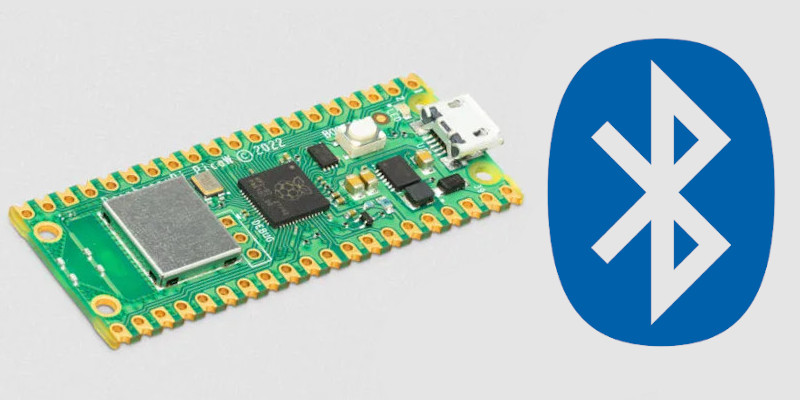What’s the best kind of upgrade a piece of consumer technology can get? A free one that doesn’t require you to do anything other than accept a new version of the software it’s running.
That’s precisely what every current (and future) owner of the Raspberry Pi Pico W just got with the addition of Bluetooth support to SDK 1.5.1. This is possible because the CYW43439 radio chipset used on the wireless version of the Pi Pico has always had Bluetooth capabilities, they just weren’t officially accessible from the C or MicroPython environments until now. In a corresponding blog post, [Eben Upton] explains that part of the delay was due to difficulties in getting both WiFi and Bluetooth connections to work simultaneously over the three-pin SPI bus that links the two chips on the board.
One thing that struck us as particularly interesting here is the use of BlueKitchen’s BTStack to provide support for both Bluetooth Classic and Low Energy profiles. This library is released under a modified version of the BSD 3-Clause license that otherwise specifically forbids commercial usage. That would be a problem for anyone who wanted to sell a gadget built around the Pico W, so Raspberry Pi Ltd negotiated — and presumably paid for — a special dispensation so commercial use is in the clear.
We should note that technically Bluetooth support was available in a beta state previously, albeit without this new license agreement made with BlueKitchen. Though anyone with a keen eye knew Bluetooth support was coming well before that, our own [Elliot Williams] called it when he first set eyes on the Pi Pico W back in 2022.
















Oooh, Micropython too?! That’s great.
Is there example on how to create BT speakers? both source and sink.
Examples are here:
https://github.com/raspberrypi/pico-examples/tree/master/pico_w/bt
But in reality those are just a tiny wrapper around the examples here:
https://github.com/bluekitchen/btstack/tree/master/example
I’ve only tried the hid keyboard and hog keyboard examples, and of those only the hid one got working. The hog one failed to pair.
The micropython integration wasn’t done when I tried this. So no idea on that part.
So ok for commercial but not ok for GPL?
I agree with that interpretation. I found it funny to use one of the most open licenses (BSD) and make it not open source compatible.
I think technically, you can create GPL code using the SDK, but nobody is allowed to distribute binaries in any form. (Technically the SDK authors could, but then had to distribute the SDK as GPL. Also the Authors of the GPL code could (all together) decide to dual-license the code under the terms of the SDK or more closed and distribute binaries.)
Doesn’t seem much different in intent from the CC-NC licenses, which nobody thinks are particularly odd.
I don’t see where any prohibition on binaries comes in, though. You can’t distribute a BSD application linked against a GPL library, but it’s perfectly fine for a GPL application to link against a BSD library. Pico applications are the latter case.
But this is not a BSD library, it’s downright misleading to call it “modified BSD” when it is really closer to CC-NC. And a GPL application cannot link to a CC-NC library.
It would have been nice to have a dual license under GPL.
Both of these points are in the post, you just have to actually read it before commenting.
Witchcraft. He knows the contents of TFS.
BURN HIM!
I wait for Wifi-mesh-batman or ‘s’
for emergency situation communication of internet using mesh network will be great
We used the Bluekitchen stack in our products. It’s a husband-and-wife team from Germany as I remember. Really great people and always on top of security patches! Hope this is good exposure for them :)